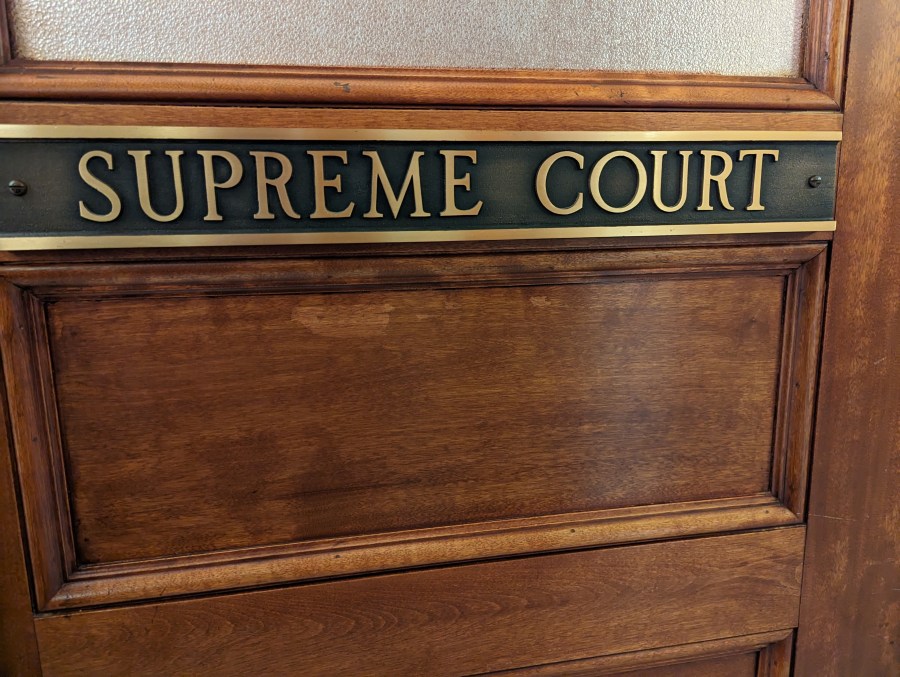PIERRE, S.D. (KELO) — The parents of a daughter who was killed when her vehicle was struck by another vehicle must be further compensated by the company that insured her vehicle as well as the parents’ vehicles, according to the South Dakota Supreme Court.
In an opinion publicly released on Thursday, the state’s high court found in favor of David H. Earll and Marcia R. Earll of Canton, whose daughter Rebecca was killed on December 31, 2022, when an underinsured motorist ran a stop sign and crashed into her vehicle.
Rebecca’s vehicle was insured by Farmers Mutual. So were her parents’ two vehicles. The parents’ policy covered relatives who lived with them.
Chief Justice Steven Jensen wrote the Supreme Court’s unanimous decision that said Farmers Mutual must pay the additional $250,000 that the parents sought from Farmers Mutual under the underinsured motorist (UIM) provision of the parents’ policy.
“At the time of the accident, Rebecca lived with her parents, and it is undisputed that she qualifies as an ‘insured’ for the purpose of UIM coverage under the policy,” Chief Justice Jensen stated.
The opinion directs Second Circuit Judge Rebecca Rasmussen to enter summary judgment in favor of the Earlls.
In the process, the Supreme Court overturned De Smet Insurance Company of South Dakota v. Pourier. The Supreme Court in 2011 had found 3-2 in favor of De Smet Insurance. Farmers Mutual had relied on that ruling in contesting the Earlls’ claim.
The Pourier decision however didn’t adequately account for South Dakota’s laws regarding motorists and insurance, according to Chief Justice Jensen.
“Finally, the goal of the statutes is to protect insured individuals, and any undue reliance on an erroneous interpretation must be balanced against the broader public interest,” he wrote about setting aside Pourier.
He described Pourier as “an outlier,” concluding “that the ‘owned but not insured’ exclusion to UIM coverage in motor vehicle policies—when used to deny coverage to an insured individual under circumstances like those in this case—violates South Dakota public policy.”


